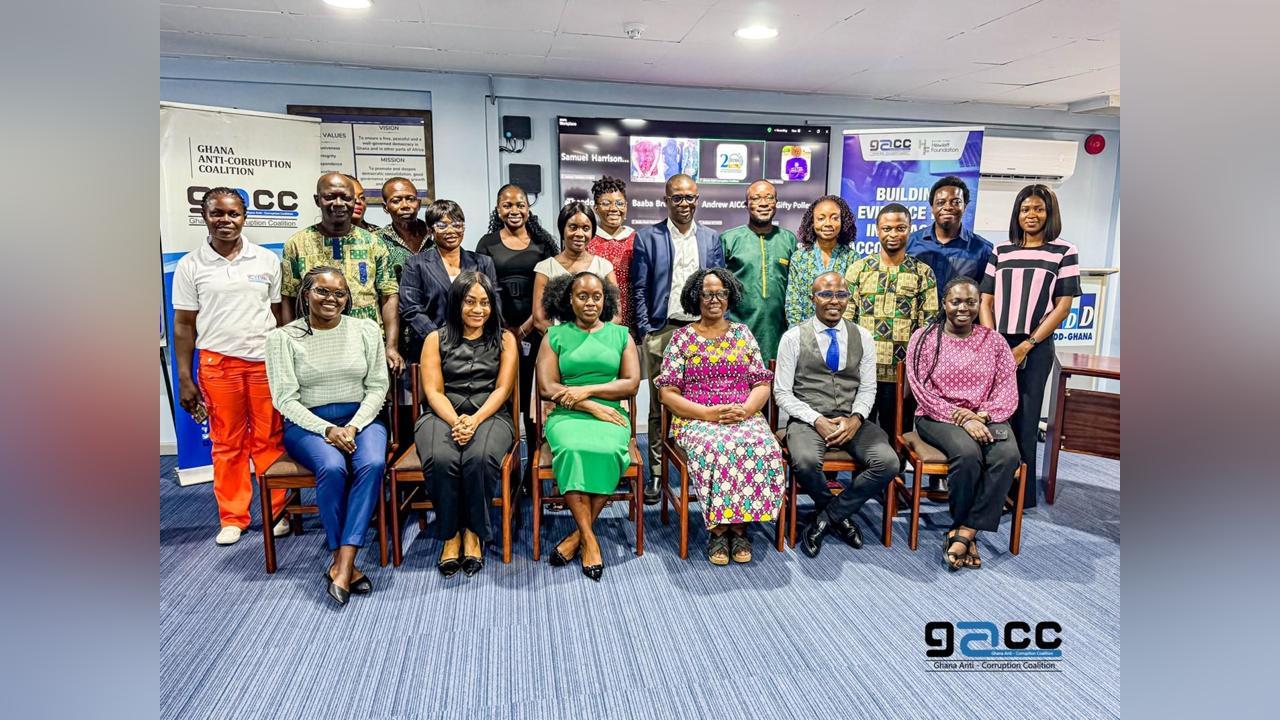Africa-Press – Ghana. Some Non-Governmental Organisations (NGOs) in anti-corruption have been trained to effectively abide by regulations on corporate governance, tax, employment, data protection, and real estate to enable them to sustain their operations.
The hybrid event was to build the capacities of the NGO leaders and practitioners across the country, equipping them with knowledge to meet their regulatory obligations and operate with increased transparency and accountability.
It was hosted by the Ghana Anti-Corruption Coalition (GACC), in partnership with TrustLaw, the global pro bono legal network of the Thomson Reuters Foundation, and HB & O Legal, with support from the Hewlett Foundation.
The training covered actionable activities on Board structure of NGOs, fulfilling tax obligations, navigating employment laws, data protection requirements, and real estate considerations.
Mrs Beauty Emefa Narteh, the Executive Secretary, GACC, said CSOs/NGOs could not continue to demand accountability from the Government and other institutions when they (NGOs/CSOs) were not following regulations covering them.
“We believe that compliance should be basic to every CSO registered to operate in Ghana. So that people do not take us on, which is more expensive,” she said, urging them to commit time and other resources for periodic training.
Madam Sally Hayfron-Benjamin of HB & O Legal, noted that as the NGO landscape evolved in a dynamic regulatory environment, it was important to enhance their understanding to navigate the complexities.
“This successful session marks an important step towards building a more compliant, ethical, and effective civil society in Ghana, and protect themselves from being targets of those they hold accountable,” she said.
Mr John Mundia from TrustLaw exposed participants to platforms on which they could access free legal support, encouraging them to sign up to such opportunities to gain legal assistance.
“The partners behind this initiative, GACC, Hewlett Foundation, TrustLaw, and HB & O Legal, remain dedicated to supporting the sector with knowledge, tools, and networks that ensure no organisation is left behind,” he said.
“This workshop was truly beneficial,” said Mr Timothy Mensah, a participant, who called for more of such opportunities to strengthen their internal capacity and ensure they met the expected standards.
“It is expected that they go back to the drawing board and ensure that they are compliant, admit what they haven’t been doing and ensure that going forward they become compliant,” she said.
Mr Gilbert Borketey Boyefio, another participant, said the training helped to identify CSO practices that were not fully aligned with the law, better positioning them to comply with regulations and hold the government accountable.
For More News And Analysis About Ghana Follow Africa-Press







